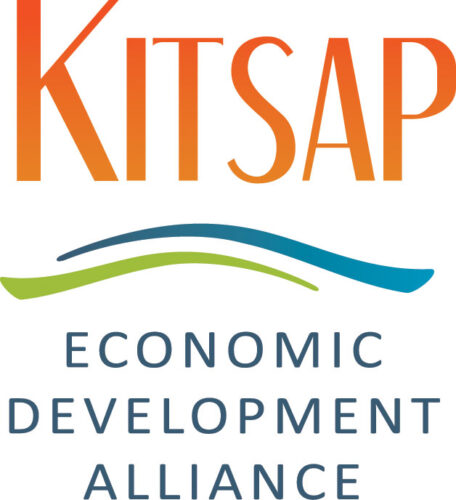In In re WeWork Litigation, 2020 Del. Ch. LEXIS 270 (Del. Ch. Aug. 21, 2020) (Bouchard, C.), the Delaware Court of Chancery considered an issue of first impression: Does the management of a Delaware corporation have the unilateral authority to preclude a director from obtaining the corporation’s privileged information? The Court held it cannot. The directors of Delaware corporations are entitled to share in legal advice the corporation receives and, subject to limited exceptions not at issue in WeWork, cannot be prevented from accessing the corporation’s privileged information.
In 2019, the board of The We Company (“WeWork” or the “Company”) formed a two-person Special Committee which entered into a Master Transaction Agreement, whereby the Company would tender shares to SoftBank Group Corp. and SoftBank Vision Fund (AIV M1) L.P. (collectively, “SoftBank”) in exchange for $3 billion in funding. When the board formed the Special Committee, it specifically determined that the directors on the committee were “free of any material conflict of interest relating to a Potential Transaction, SoftBank and [WeWork founder] Adam Neumann.” The tender offer was scheduled to close on April 1, 2020, but SoftBank terminated agreement, asserting that certain closing conditions had not been satisfied.
On April 7, 2020, the Special Committee filed an action on behalf of WeWork against SoftBank alleging that it (i) breached its obligations to use its reasonable best efforts to consummate the transactions contemplated in the Master Transaction Agreement and (ii) breached its fiduciary duties as the controlling stockholder by failing to consummate the transaction. On April 17, 2020, SoftBank moved to dismiss the Complaint and sent a letter to the board asserting that the Special Committee should be prohibited from continuing the litigation because its members were allegedly conflicted. The Special Committee rejected these claims in its own letter to the board.
At the time the competing letters were sent, the board consisted of eight directors, including four SoftBank designees and the two Special Committee members. By a vote of 6-2 (with the Special Committee members voting against), the board authorized management to engage an executive search firm to identify two candidates for appointment to the board on a temporary basis (the “New Committee”) to address the proper scope of the Special Committee’s authority to direct WeWork’s litigation against SoftBank. The Special Committee requested information regarding the steps taken to identify these new directors and management’s discussions concerning this process, including discussion between management, on the one hand, and the Company’s inside counsel and outside counsel (Skadden, Arps, Slate, Meagher & Flom LLP (“Skadden”)).
Despite opposition by the Special Committee, the board ultimately formed the New Committee, which hired separate counsel and produced a report concluding that the Special Committee did not have authority to initiate the litigation against SoftBank. The Company followed the recommendation of the New Committee and filed a motion to dismiss its complaint. Management joined this motion and also requested dismissal of the lawsuit.
The Special Committee sought discovery to oppose the motion to dismiss asking for, among other things, management’s communications with Skadden and inside counsel regarding the decision to form the New Committee. Management opposed the discovery claiming that: (i) the Special Committee was adverse to the Company; (ii) the Special Committee could not reasonably expect to receive advice from Company counsel concerning the New Committee; and (iii) management had a reasonable expectation of confidence vis-à-vis the Special Committee to which it was adverse. In response, the Special Committee argued that it was entitled to the requested information because the board, not management, is responsible for overseeing the affairs of the corporation. The Special Committee also claimed it was not adverse to the Company.
The Court of Chancery ruled in favor of the Special Committee. As a threshold matter, the general rule is that “a director’s right to information is essentially unfettered in nature. . . . [A] corporation cannot assert the privilege to deny a director access to legal advice furnished to the board during the director’s tenure.” The recognized exceptions to the general rule are where (i) the parties agree to limit a director’s right to information ex ante; (ii) the board appoints a special committee and the communications are between that committee and its counsel; or (iii) a board or special committee determines that there is sufficient adversity between the excluded director and the corporation. Only exception (iii) was at-issue. The Court, however, held that management failed to establish that exception (iii) applied.
As an initial matter, the board made no decision regarding whether to withhold the Company’s privileged information; rather, the decision was made by management unilaterally. Although management argued that the preservation of the privilege was justified because every director was allegedly conflicted, the Court held that management did not have the discretion to make this determination. The directors, and not management, are responsible for the proper management of the corporation and have a right to be treated as “a joint client when legal advice is rendered to the corporation through one of its directors or officers.” Moreover, the board could not vote to ratify the exclusion of the Special Committee from the disputed communications because six (out of the eight) directors were tied to SoftBank and, thus, conflicted.
Under basic principles of Delaware law, the directors of a Delaware corporation are presumptively entitled to obtain the corporation’s privileged information as a joint client of the corporation, and any curtailment of that right cannot be imposed unilaterally by corporate management untethered from the oversight and ultimate authority of the corporation’s board of directors. As a result, the Special Committee was entitled to the communications between management and counsel resulting in the creation of the New Committee. However, the Special Committee’s rights did not extend to the New Committee’s discussions with its separate counsel.
The WeWork decision serves to highlight the fraught nature of corporate attorney/client communications where a board has competing factions of directors. Absent ex ante action by an independent board to shield certain attorney/client communications of management from an opposing faction of the board, management cannot unilaterally withhold those communications from any board members. One way corporate counsel and management may withhold putatively privileged communications from an opposing faction of the board is by having the board form a special committee prior to any communications between management and counsel. So long as management’s communications with counsel fall within the purview of the special committee, it would seem that Delaware law would shield those communications for discovery by board members outside the committee.
Syndicated from Sheppard Mullin








